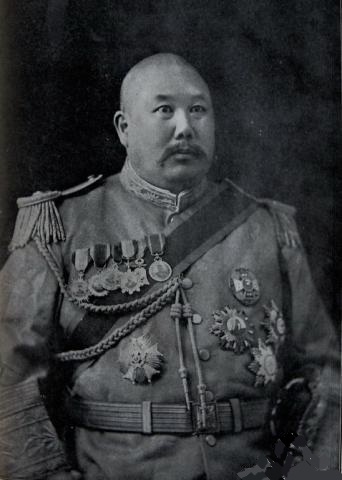“What, no more? Tell the cook we require ten more courses.”
In the Land of the Laughing Buddha – The Adventures of an American Barbarian in China, Upton Close, 2007, READ BOOKS, 272, 1-4067-1675-8, 440, 2010-06-28 http://books.google.com/books?id=DpQa22PJutwC&dq=arab+mercenaries+china&q=They+have+not+enjoyed+the+educational+and+political+privileges+of+the+Han+chinese%2C+and+they+are+in+many+respects+primitive#v=snippet&q=What%2C%20no%20more%3F%20Tell%20the%20cook%20&f=false,
Varianta: Tell the cook, that we will either have ten more courses or the crows will have him.
